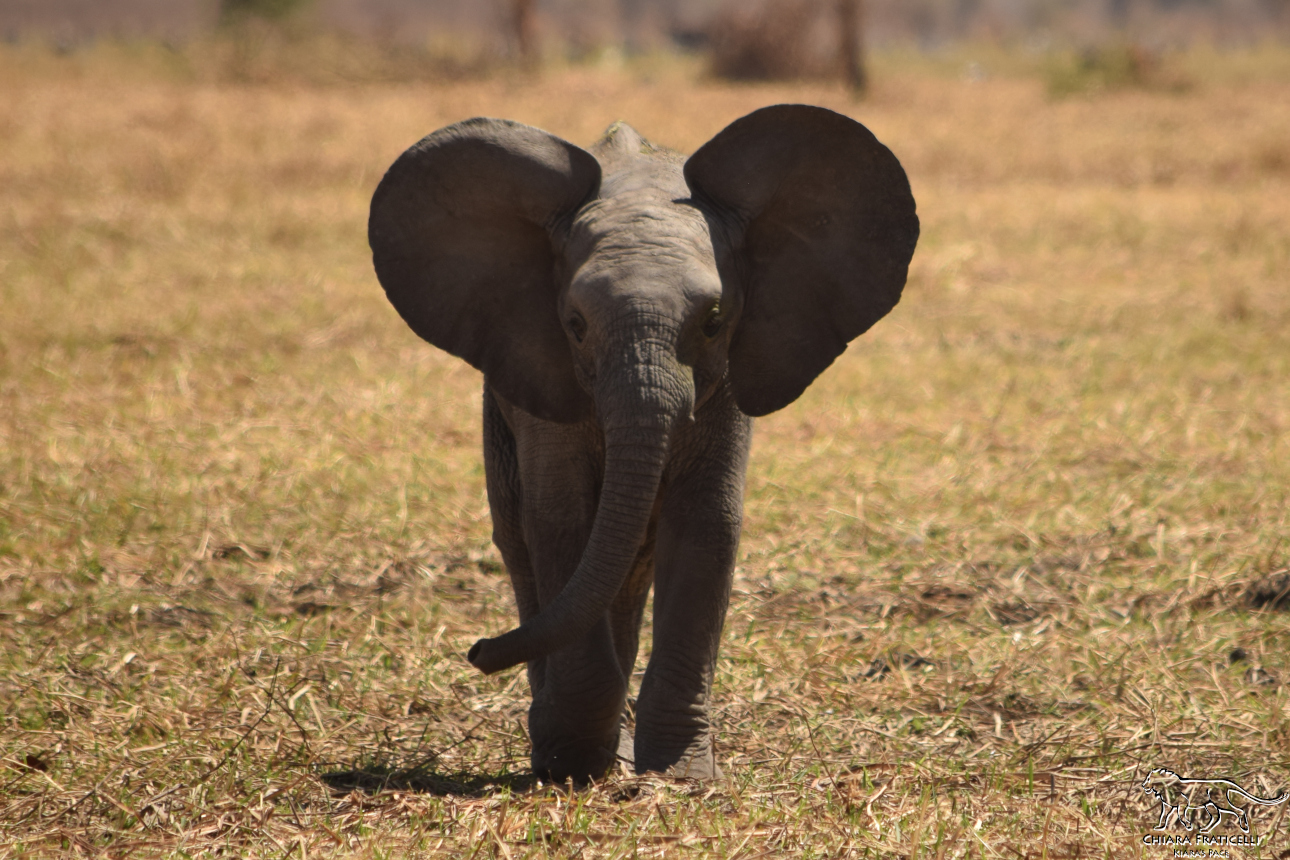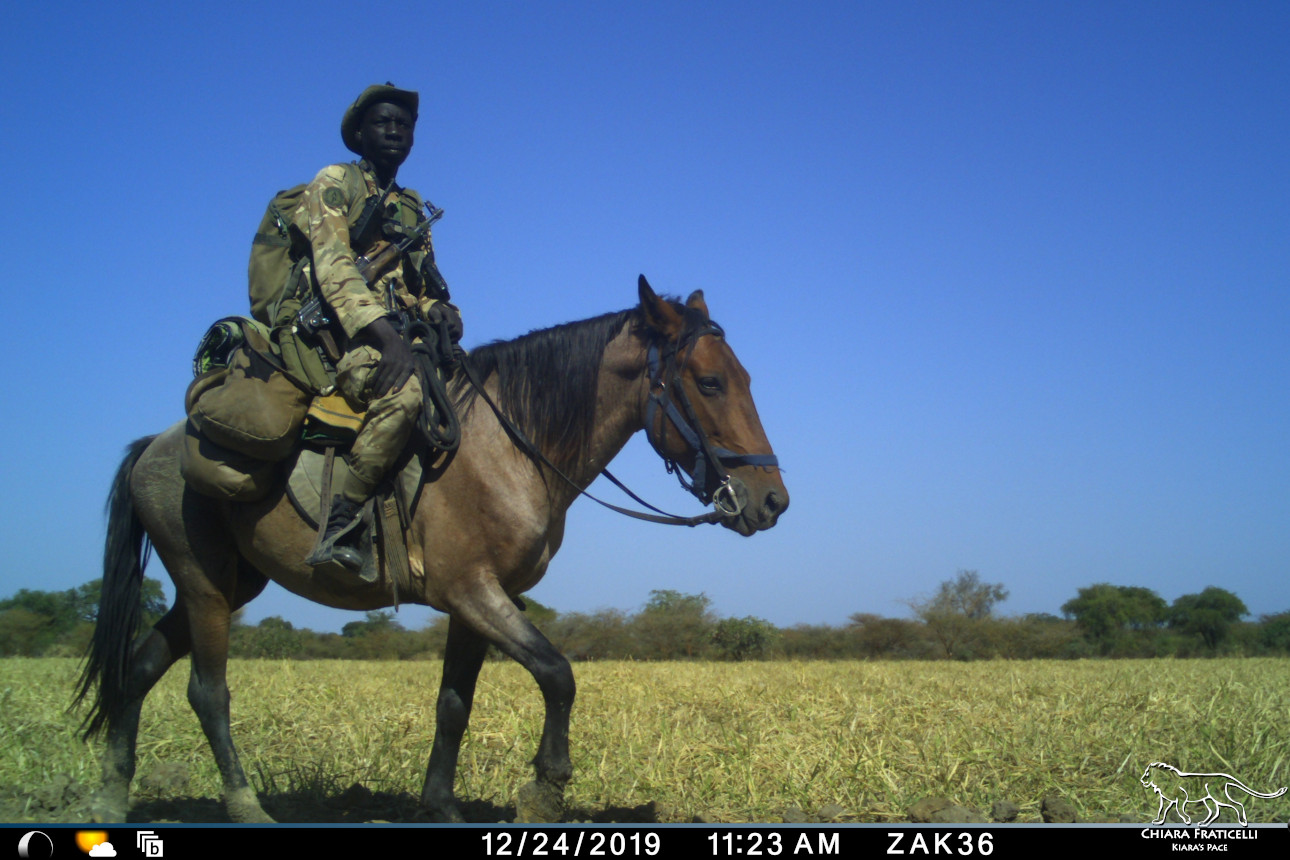
There are 520 elephants roaming Zakouma and the surrounding grounds according to the last estimate. Their numbers have been significantly increasing in the recent years, after security measures have been increased.
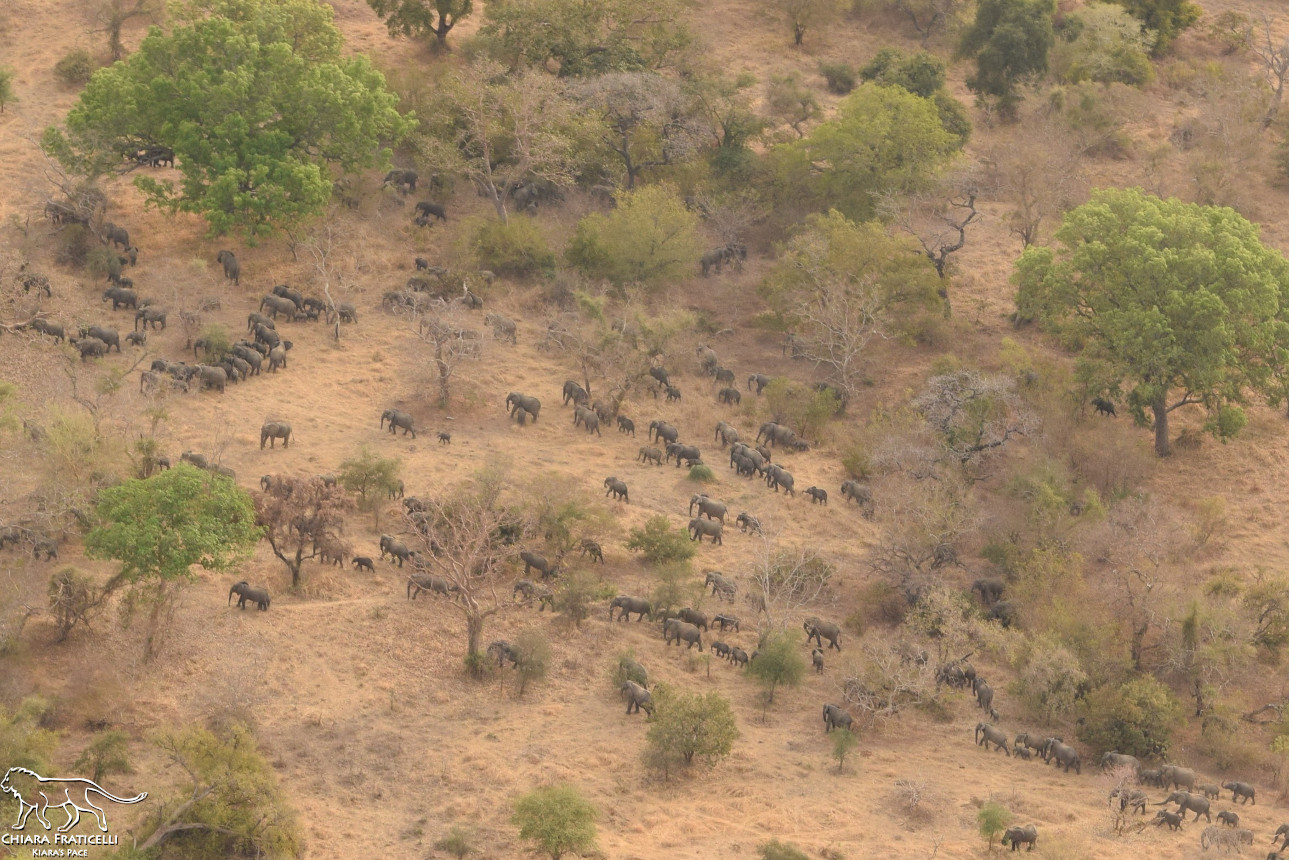
In the early 2000s the elephants in Chad suffered heavy poaching. In less than 10 years Chad lost almost 90% of its elephant population, going from over 4000 animals to just 400. Poaching was carried out as mass murder, poachers simply took machine guns and shot on the elephant herds, not caring if they hit juveniles, females or tusk-less elephants. Elephants panicked and often trampled the young while escaping, which is why when African Parks took over the management of Zakouma in 2010 there were basically no babies or juveniles in the depleted herds.
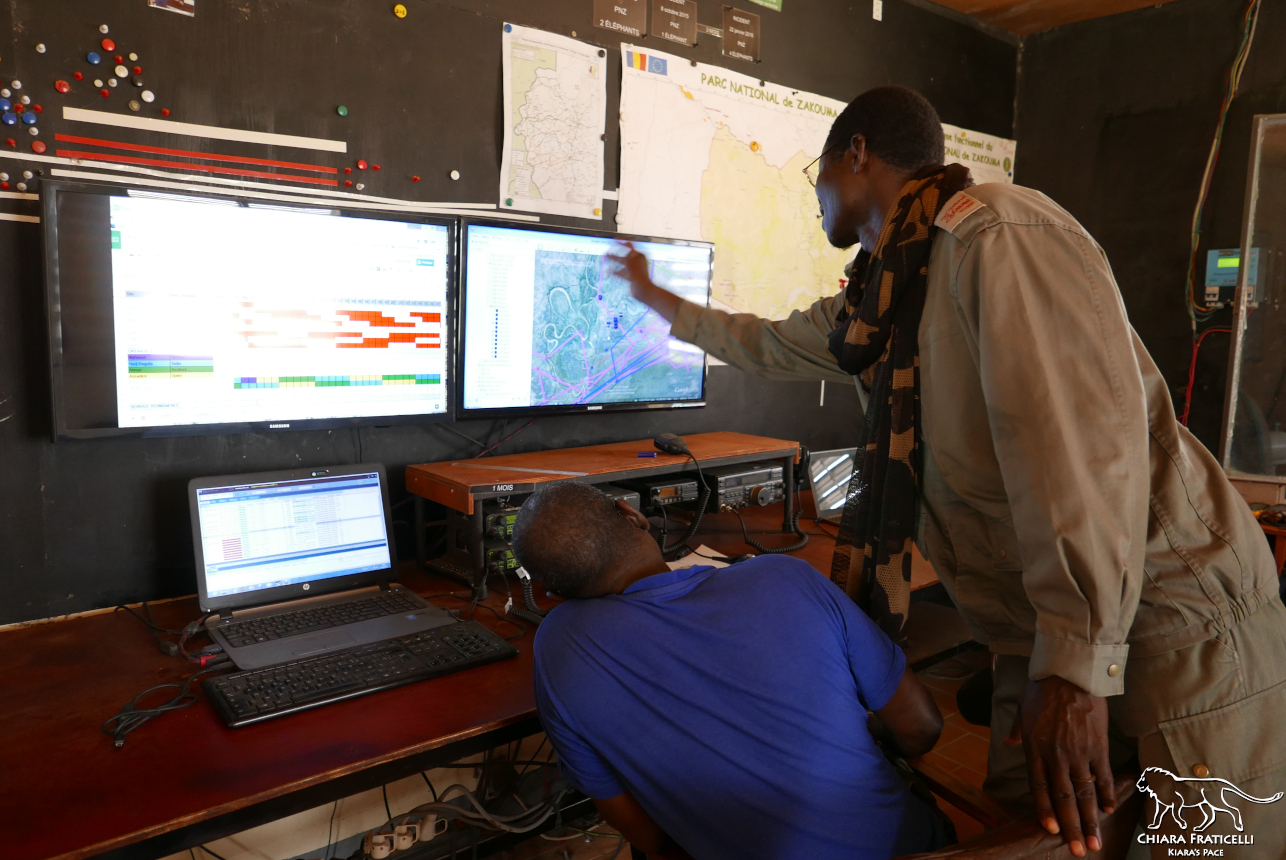
Today we were invited to see the anti-poaching operation centre. Up the stairs of the administration building, there is a small, dark and blissfully cool room where we met the operators monitoring the movement of the elephants and of the patrol groups. With maps on the walls, computer screens and several radio receivers they keep an eye on everything going on in the park and its periphery. The position of all patrol groups is monitored in this control room. Through the use of Google Earth Pro, they map the movement of the elephant herds and direct the guards on the ground.
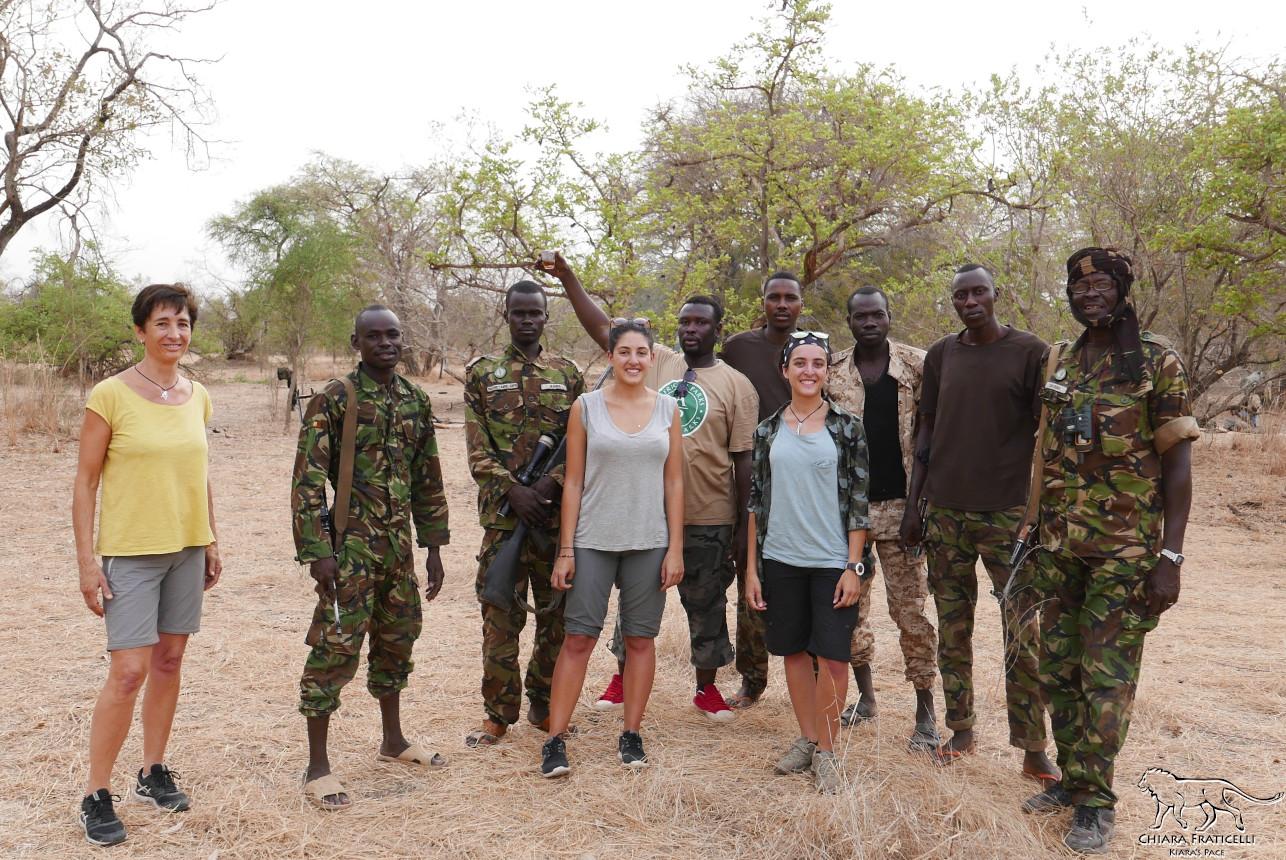
There are two kinds of patrols present: the border patrols and the anti-poaching patrols especially dedicated to protecting elephants. The first one is conducted by two groups of the Garde Nationale et Nomade du Tchad – GNNT (National and Nomadic Guard of Chad) on the North and South border of the park. These patrols are not only to stop poaching, but also to avoid trespassing of the nomad’s herds of zebu or camels on the park grounds.
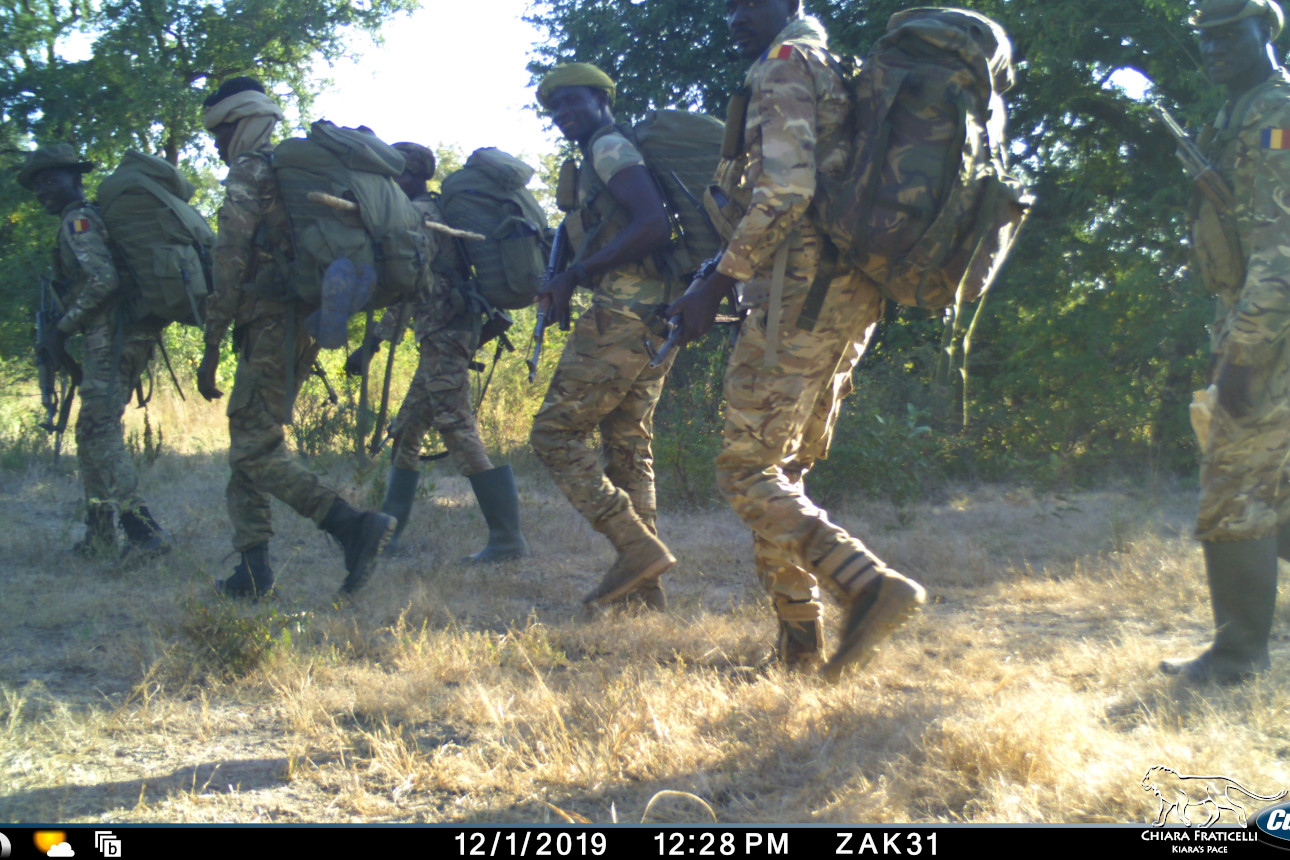
The anti-poaching patrols are run by two groups of 8 people on foot and two groups of 6 people on horseback that stay close to large herds of elephants that move through the park. Where the guards on foot can stay closer than 2 km from the animals, the guards on horseback have to stay 5 or 6 kilometres away to avoid the elephants catching the smell of the horses which for them is associated with hunting.
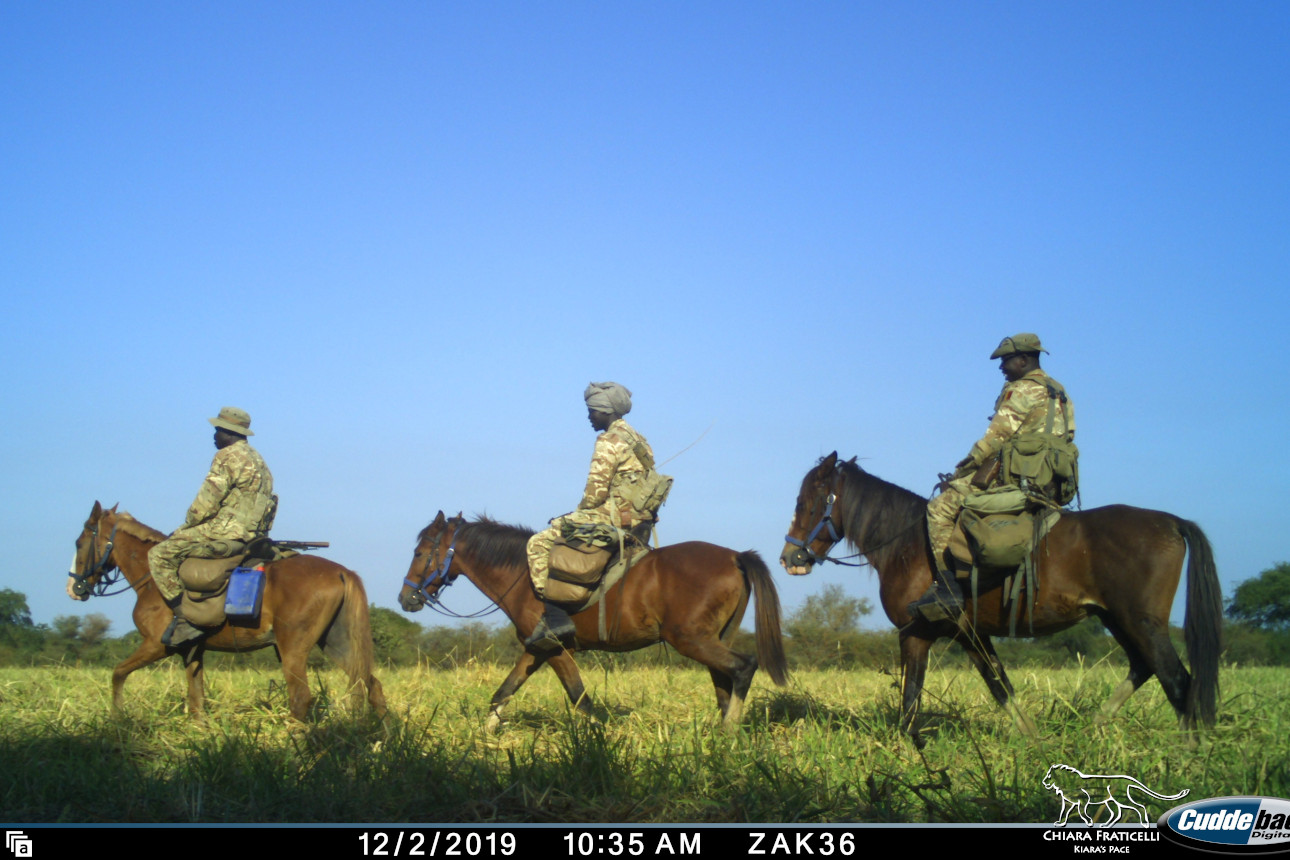
Villages surrounding the park also contribute to its protection. The larger villages have a radio and in case of suspicious activity close to the park, they can contact the operation centre that will mobilize a patrol to check it out. This includes both threats to the wildlife in the park, and threats to the people living in these border villages, creating a positive relationship between the park and its neighbours.
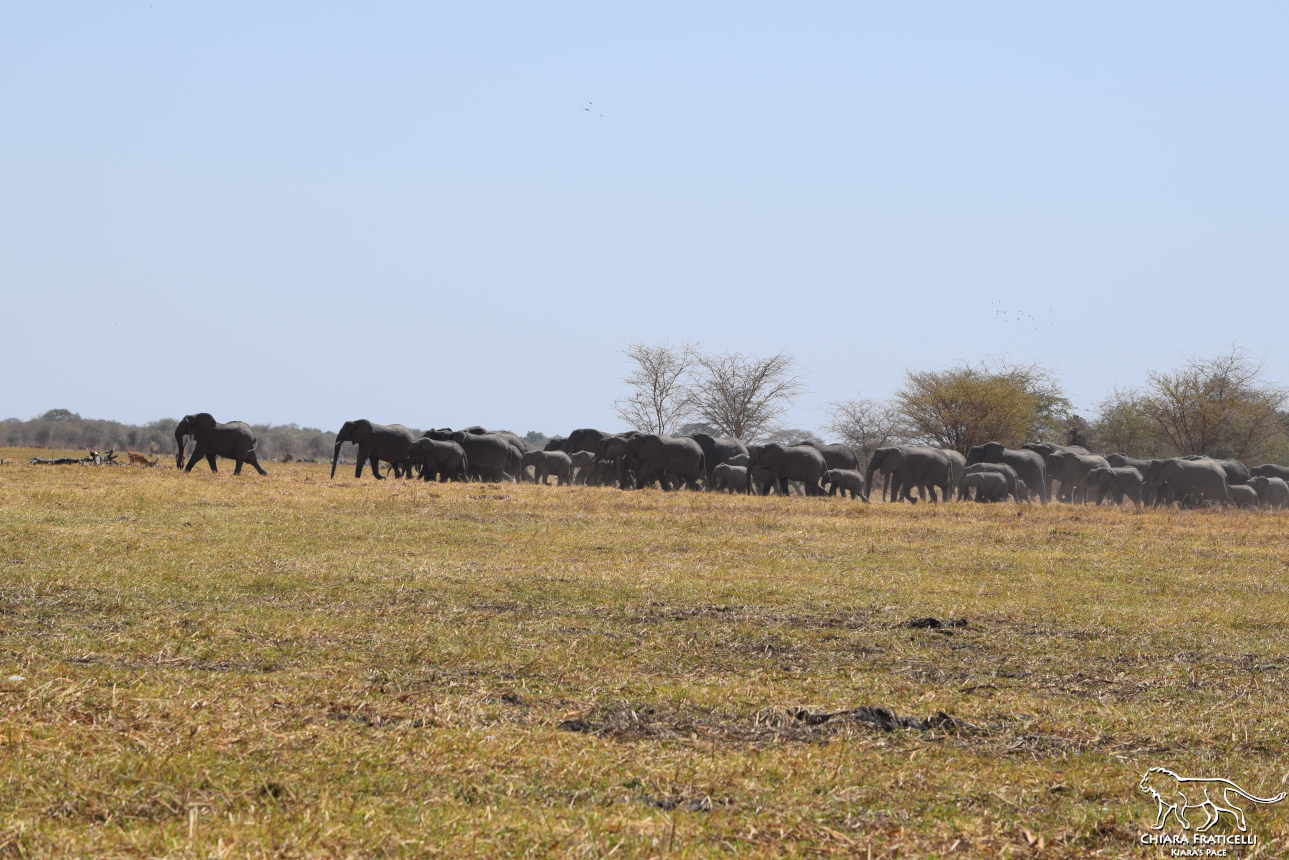
Thanks to the focused anti-poaching effort and collaboration with all the surrounding villages, the elephant population is finally increasing again, with more than 50 babies counted this year. As well as elephants, all other species are thriving in Zakouma, with significant increase in abundance for a lot of different species.
